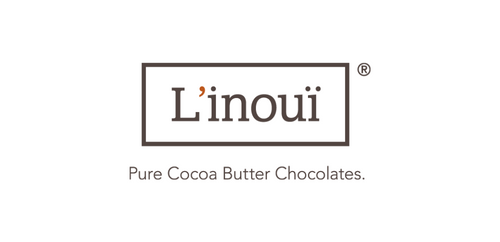Palm oil is one of the most widely used ingredients in a variety of products ranging from soap to cookies. While its use is becoming increasingly popular, there are still many dangers associated with it that are not often discussed. In this blog post, we'll explore what palm oil is and why it can be dangerous to your health. We'll also look at ways you can limit your exposure to this common ingredient.
Introduction to Palm Oil
Palm oil is a type of vegetable oil that is derived from the fruit of the African palm tree. It is a popular ingredient in many processed foods and cosmetics, as it is relatively inexpensive and has a long shelf life. However, there are some hidden dangers associated with palm oil that you may not be aware of.
For starters, the production of palm oil is responsible for massive deforestation in tropical regions like Indonesia and Malaysia. This has led to the loss of habitat for many animals, including endangered species like orangutans. In addition, the use of palm oil has also been linked to heart disease and cancer.
So, next time you're perusing the ingredients list on your favorite food or cosmetic product, be sure to look out for palm oil. And if you can't avoid it altogether, at least try to choose products that are certified sustainable by organizations like the Roundtable on Sustainable Palm Oil (RSPO).
What is Unhealthy About Palm Oil?
Palm oil is a common ingredient in many processed foods and cosmetics. It is also used as a biofuel. On the surface, palm oil seems like a harmless, even healthy, product. However, there are some hidden dangers of palm oil that you may not be aware of.
One of the major problems with palm oil is that it is often produced unsustainably. This means that rainforests are being cleared to make way for palm plantations, which destroys the habitat of many animals, including endangered species like orangutans. The production of palm oil also results in greenhouse gas emissions, contributing to climate change.
Another issue with palm oil is that it is high in saturated fat. This type of fat can raise cholesterol levels and increase the risk of heart disease. Palm oil is also frequently hydrogenated, meaning that it has been treated with chemicals to make it solid at room temperature. Hydrogenated fats are believed to be even more harmful to health than saturated fats.
So, while palm oil may seem like a harmless or even healthy product, there are some hidden dangers that you should be aware of before consuming it or using products that contain it.
Environmental Impact of Palm Oil Production
The palm oil industry is responsible for massive deforestation, as well as air and water pollution. The production of palm oil also results in the loss of habitat for many animals, including primates like orangutans. In addition, the use of pesticides and other chemicals in palm oil production can have harmful effects on both workers and the environment.
Health Risks Associated with Eating Palm Oil
Palm oil is a type of vegetable oil that is derived from the fruit of the oil palm tree. It is one of the most widely used edible oils in the world, as it is inexpensive and has a high yield. palm oil is used in a variety of food products, as well as in cosmetics and household products.
While palm oil may be a convenient and affordable ingredient, it comes with some health risks. Here are some of the potential health risks associated with eating palm oil:
- Palm oil is high in saturated fat.
Saturated fat can increase your bad (LDL) cholesterol levels and contribute to heart disease. Palm oil is about 50% saturated fat, making it one of the highest sources of saturated fat among all plant-based oils. If you are trying to limit your saturated fat intake, then you should avoid or limit foods that contain palm oil.
- Palm oil may promote weight gain.
palm oil is high in calories and easy to overconsume. Additionally, animal studies have found that palm oil can promote weight gain more than other types of fats (1). If you are trying to lose weight or maintain a healthy weight, then you should avoid foods that contain palm oil.
- Palm oil may worsen insulin resistance.
Insulin resistance is a condition where your body becomes less sensitive to insulin, which can lead to type 2 diabetes. Some studies have found that consuming palm oil can worsen insulin
Alternatives to Palm Oil
As the world becomes more aware of the problems with palm oil, many companies are looking for alternatives. Here are some of the most popular options:
- Coconut oil: Coconut oil is a good alternative to palm oil because it is also high in saturated fats. However, it has a lower melting point than palm oil, so it is not ideal for use in products that need to be solid at room temperature.
- Soybean oil: Soybean oil is another option for those looking for an alternative to palm oil. It is a polyunsaturated fat, so it has a lower saturated fat content than palm oil. However, soybean oil is not as stable as palm oil and can go rancid more easily.
- Olive oil: Olive oil is a healthier option than palm or soybean oils because it is high in monounsaturated fats. However, olive oil has a lower melting point than palm oil and can solidify at room temperature.
- Sunflower seed oil: Sunflower seed oil is another polyunsaturated fat that can be used as an alternative to palm or soybean oils. However, sunflower seed oil has a nutty flavor that some people may not enjoy.
- Rapeseed (canola) oil: Rapeseed (canola) oil is another polyunsaturated fat that can be used as an alternative to palm or soybean oils. Canola oil has a neutral flavor that some people
Tips for Shopping Without Buying Products with Palm Oil
When it comes to palm oil, there are a few things that you need to keep in mind. For one, this ingredient is used in a wide variety of products, from food to cosmetics. It’s also important to know that palm oil is linked to some serious environmental issues. Here are a few tips for shopping without buying products with palm oil:
- Check the labels of the products you buy. If a product contains palm oil, it will usually be listed in the ingredients list.
- Avoid products that contain “vegetable oil” or “vegetable fat” as these could be derived from palm oil.
- Choose products that specifically say they do not contain palm oil.
4 .Support companies that have made a commitment to using sustainable palm oil.
5 .Educate yourself and others about the issues surrounding palm oil production and consumption.
Conclusion
Palm oil is a ubiquitous ingredient in many of the products we consume on a daily basis, but it can be detrimental to both human health and the environment. It's important for us to understand our relationship with palm oil so that we can make more conscious decisions when purchasing items that contain this potentially harmful substance.
By doing our part to limit our own consumption of palm oil-containing products, we can help reduce global reliance on this unsustainable resource and protect ourselves from its adverse effects.
At Linoui, we are dedicated to our customers' well-being and only utilise 100% pure cocoa butter. We take pride in being one of the few brands that do not use any kind of vegetable oils in their products.



